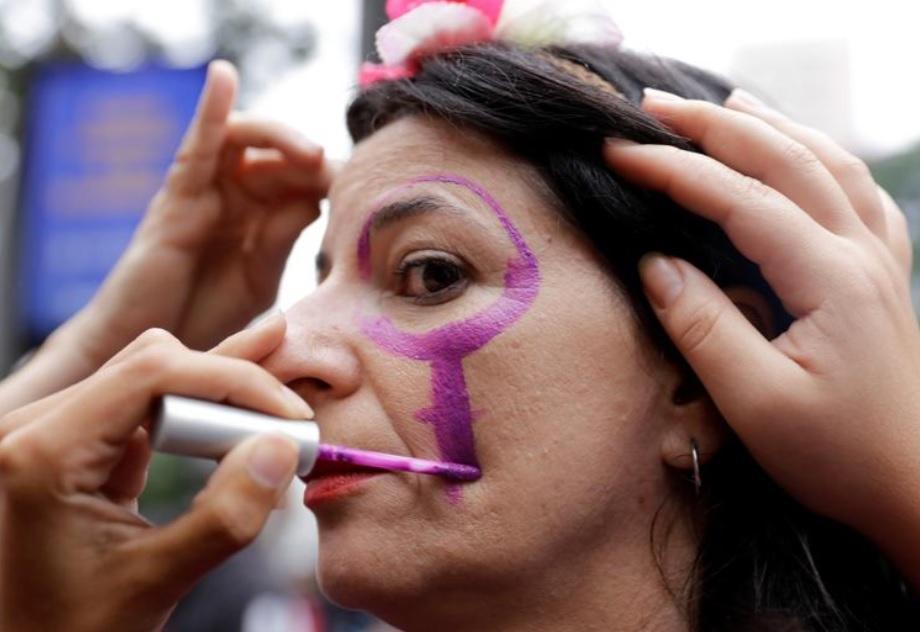
Over the past year, the world has experienced unprecedented challenges due to the COVID-19 pandemic, which has affected every aspect of our lives. At the same time, we still need to tackle age-old, persistent problems of inequalities, discrimination and exclusion that have not yet been resolved.
This year, the theme for International Women’s Day (8 March), “Women in leadership: Achieving an equal future in a COVID-19 world,” celebrates the tremendous efforts by women and girls around the world in shaping a more equal future and recovery from the COVID-19 pandemic and highlights the gaps that remain.
The Beijing Declaration and Platform for Action, adopted by 189 UN member states in 1995 and representing the most visionary global agenda for women’s rights, recognized that women’s equal participation in decision-making is not only a demand for justice or democracy. Without the active participation of women and the incorporation of their perspective at all levels of decision-making, the goals of development and equality cannot be achieved. Under the Sustainable Development Goals, (SDGs) countries have committed to ensure women’s full and effective participation and equal opportunities for leadership in political, economic and public life by 2030.
Yet, despite incremental progress in the past decades, women are still underrepresented in public life and decision-making. Only three countries in the world have 50 per cent or more women in national parliaments, on average globally women are 25.5 percent of parliamentarians, and in Turkey they represent 17.2 percent. Globally 119 countries have never had a woman leader as a Head of State or Government. At the local level, available data from 133 countries and areas reveal that 36 percent of elected officials are women. In Turkey, the ratio of women among municipal councilors is 11 percent. At the current rate of progress, gender parity will not be reached in parliaments before 2063, in ministerial positions before 2077 and in the highest positions of power before 2150. This pace is too slow and we need bold and decisive actions to accelerate progress and make irreversible change towards gender equality.
Furthermore, the COVID-19 pandemic has had severe and disproportional effects on women - ranging from higher losses of jobs and income, to increased levels of domestic violence, to significant rise in the unpaid care and domestic work women and girls perform at home. The pandemic is threatening to reverse the gains made in the past 25 years and to exacerbate existing inequalities. And even though there are many examples of women effectively leading COVID-19 response and recovery efforts, an analysis of COVID-19 task forces from 87 countries found that only 3.5 per cent of them had gender parity.
The complex challenges humanity is facing today make it even more imperative to increase women’s voices and participation, and to unite our efforts for change. We need a true multi-stakeholder effort, which involves government, civil society, the media, the private sector, and women, men, girls and boys from all generations The Generation Equality Forum, the most important convening for gender equality investment and actions, kicks off in Mexico City from 29 – 31 March, and culminates in Paris in June 2021. It will draw leaders, visionaries, and activists from around the world, safely on a virtual platform, to push for transformative and lasting change for generations to come.
In Turkey, to highlight the importance of women’s leadership and gender-responsive public policies, services and institutional practices, UN Women is launching today a campaign “Equal City”, aligned with the global IWD theme. The campaign stresses the critical role of local governments in ensuring an enabling environment for women to become leaders and active participants in social, economic and political life. We call on everyone to visit the online platform, www.equalcity.org / www.kentinegel.org, take a virtual tour around a city which provides gender responsive services and equal opportunities to all, and to share their own vision.
Let us renew our commitment and intensify our efforts in order to fulfill the promise of the Beijing Declaration and Platform for Action and the Agenda 2030 for Sustainable Development. Let us put the rights and leadership of women and girls at the center to create a better, more equal and more resilient world for this and the future generations.
*Asya Varbanova is the U.N. Women Turkey Country Director